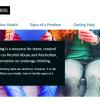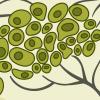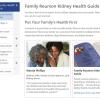Search

Urine Test Detects High-Risk Prostate Cancers
Prostate cancer is a leading cause of cancer death among men. Scientists have developed a urine test that could help some men avoid unnecessary biopsies. Screening for prostate cancer usually involves a blood test. The test measures levels of a substance called prostate specific antigen (PSA). High PSA levels may require more tests, such as a biopsy. A biopsy involves removing small samples from…

Step-by-Step Guide to Advance Care Planning
As we get older, it’s important to plan for future decisions about medical care. And it’s a good idea to discuss those decisions with loved ones. This is called advance care planning. Advance care planning includes preparing documents like a living will. This tells doctors how you want to be treated if you can’t make your own decisions about emergency care. Research shows that you’re more likely…

Facts About Teen Drinking
NIH has a new resource for teens to learn about underage alcohol misuse. How does alcohol affect the body? How do you detect an alcohol problem in yourself or a loved one? What resources are available to teens with alcohol-related issues? Get answers to these important questions and more.

When Cancer Spreads
A cancer diagnosis can be scary. Some cancers can be cured if caught early. Treatments like surgery, radiation, and chemotherapy can destroy many early-stage cancers. But cancer can be difficult to treat when caught later on, after it spreads. Cancer cells are sneaky and stubborn. They are hard to stop from growing and spreading. Cancer cells can also break away from their original location and…, Adapting to New Locations, Cancer cells can spread to almost any part of the body. The liver, lung, and bones are the most common places. Different types of cancer tend to spread to certain locations. For instance, pancreatic and colon cancer commonly spread to the liver. Breast cancer and a type of skin cancer called melanoma can spread to the brain. Metastatic cancer is considered to be the same type of cancer as the…, Revving Up Defenses, In recent decades, scientists have uncovered new ways to use the body’s own immune system to fight cancer. This is called immunotherapy. One type, called immune checkpoint inhibitors, is now widely used. It can extend the lives of many patients with metastatic cancer. “Tumor cells are good at hiding from the immune system. They do this by displaying proteins that send the signal: ‘Do not attack…, Coping With Metastatic Cancer, “A diagnosis of metastatic cancer can be overwhelming,” Nadeau says. “But treatment options continue to improve. There are reasons to be hopeful.” The goal of treating metastatic cancer is usually to stop or control its growth to extend the person’s lifespan. Other treatments are designed to relieve symptoms and improve quality of life. This type of treatment is called palliative care. It can be…

Sound Check
Speaking, singing, and making other sounds require many parts of your body to work together. Your brain thinks of ideas. Your lungs move air in and out. Your vocal cords vibrate. Your mouth and nose help shape sound. “Our whole body participates in the production of voice, speech, and breathing. So we can get a lot of information about our health from them,” says Dr. Yael Bensoussan, a voice…, [qtip:dementia|Loss of thinking, memory, and reasoning skills that seriously affects your ability to carry out daily activities.], , lung problems, and even cancer. Measuring voice, speech, and breathing patterns could help diagnose health problems. Researchers are testing ways to use apps and other tools to let people measure such information at home. For example, a recent study showed that a computer program could identify patients with Parkinson’s disease by their breathing patterns during sleep. “Voice, speech, and…

Lasting Protection From Peanut Allergy
Peanut allergy is one of the most common food allergies. It often begins in childhood and usually lasts for life. Symptoms include hives, lip swelling, and trouble breathing. It can even be deadly. Several years ago, an NIH-funded study found that kids who began eating foods with peanuts as infants were less likely to become allergic to them. By age 5, their risk of peanut allergy had dropped by…

Scaly Skin: About Psoriasis
Psoriasis is a long-lasting skin disease. Patches of skin become scaly and inflamed. Psoriasis usually affects the scalp, elbows, and knees. But it can also appear on other parts of the body. Anyone can develop psoriasis. It arises when the body’s disease defense system becomes overactive. This triggers skin cells to multiply too fast. Symptoms can vary based on the type of psoriasis. Some people…

Family Reunion Kidney Health Guide
Visiting family this summer? Use the time to share key health information. Get tips for encouraging discussions about the importance of kidney health. Learn about the links between diabetes, high blood pressure, and kidney disease. And get ideas for connecting with loved ones to inspire healthy behaviors.

Connective Tissue Disorders
Our bodies are held together by structures called connective tissue. Connective tissues make up the ligaments and tendons that help your joints move. They also provide structure and flexibility for body parts, such as your skin and blood vessels. Damage to your connective tissue can cause serious health issues. Normal wear and tear from aging can start to erode connective tissues. So can certain, [qtip:autoimmune diseases|Conditions in which the body’s disease fighting system mistakenly attacks and destroys the body’s own cells.], , like lupus, and specific connective tissue disorders. The effects of these conditions can range from mild to severe. Researchers are looking for better ways to diagnose and treat conditions that lead to connective tissue damage. Getting treatment may help improve a person’s quality of life. But connective tissue disorders can be hard to recognize., Connecting the Dots, Connective tissue disorders aren’t common. Several can be passed down genetically. Those tend to run in families. Each disorder affects different body parts. One condition, known as Marfan syndrome, can lead to balloon-like bulges called aneurysms in blood vessels. These bulges are especially dangerous when they occur in the body’s largest blood vessel, the aorta, which carries blood to the heart…, Finding the Cause, Sometimes, having a connective tissue disorder in the family can delay diagnosis, Gensemer explains. “People can get accustomed to thinking that something painful is normal,” she says. “You might say something to your mom and dad, and their answer might be ‘Oh, that happens to me all the time.’” But you can’t always be sure what’s causing your symptoms. So it’s important to talk with your doctor…, Living With Connective Tissue Disorders, Researchers hope that a better understanding of the causes of these disorders will eventually lead to a cure. Currently, treatments for connective tissue disorders focus on managing symptoms. Both Marfan syndrome and hEDS can affect your blood vessels, which makes them vulnerable to tearing. People with these conditions often need frequent monitoring. Some may eventually need surgery to make sure…, [qtip:stem cells|Cells that have the ability develop into many different cell types in the body.], from patients’ skin, fixing the broken gene, and then returning repaired cells to the body. They’re testing whether these cells can heal blisters that arise in people with EB and prevent new ones from forming. “The skin is visible, so we can just look to see whether this works,” Bruckner explains. “If it does, then we have the potential to change the stem cells into other types of cells that…

Tired, Achy Eyes?
Are your eyes tired, dry, or achy? Many factors can contribute to these types of symptoms. But a big culprit can be intense use of your eyes. Spending too much time looking at screens and held devices, like smartphones, can strain your eyes. So can normal aging. What can you do to find relief? One major cause of eye discomfort is not blinking enough. “When we focus on tasks like reading or…
NIH Office of Communications and Public Liaison
Health and Science Publications Branch
Building 31, Room 5B52
Bethesda, MD 20892-2094
Contact Us:
nihnewsinhealth@od.nih.gov
Phone: 301-451-8224
Share Our Materials: Reprint our articles and illustrations in your own publication. Our material is not copyrighted. Please acknowledge NIH News in Health as the source and send us a copy.
For more consumer health news and information, visit health.nih.gov.
For wellness toolkits, visit www.nih.gov/wellnesstoolkits.
